Tuesday, January 20, 2009
A Monograph by Andy...
Becoming Aware of Our Transient Future: Reflections, Insights, and Pondered Ideas On Staggering Super Adaptation Demands— Deep Understanding And Practical Prescriptions For A Daring (Man-Made And Otherwise) Third Millennium! By © Copyright Andres Agostini, December 16 / 2K9 - Arlington, Virginia, USA
Andres Agostini
High-Tech Visionary and Researching Strategist, Advisor on Management/Business/Leadership
www.AgostiniWorks.blogspot.com
www.AgostiniNews.blogspot.com
www.1Editor.blogspot.com
© Copyright 2009 by Andres Agostini (This material may be reproduced for noncommercial purposes if it is copied in its entirety, including this notice.)
_______________________________________________________________________
Abstract
The FUTURE always wishes to readily equip the present with novel information. Why? Because the FUTURE considers the PRESENT a failed stated in the realm of time, and does desire to get implicated with the downsides of a sub-optimal fellow.
As the FUTURE gives the PRESENT a bad score and becomes judgmental on it, the PRESENT flagrantly denies and rejects the current existence of the FUTURE.
As the FUTURE paraphrases Shakespeare’s sentence (fears take away the good with which we could win) and executes it in the practice, the PRESENT feels a great animosity against such a maxim and habit.
The forthcoming FUTURE –already among us – has a lot to offer to the PRESENT, namely an invaluable out-of-this-word-and-time source of narrative and numerical data (unexplored repository knowledge waiting to being seized by the PRESENT and its inhabitants). Can you think of anyone more visionary than the king in his class, the FUTURE?
The PRESENT, unfortunately, is somehow anecdotic while the FUTURE ruthlessly and relentlessly abides by ever-emerging scientific truths. These truths contained vast gold mines for creation, recreation, and supercreation, as well as for devastation. The cultivated brains must root out the endless dangers to capture the benefits, so humankind prevails on Earth and much more beyond it if the Universe, too, –and its own dynamics– warrants such a license.
For the first time in history, we can work backward from our imagination rather than forward from our past. “In the midst of chaos, there is a learning lesson to assimilate. Sometimes the table is served for an OVER LEARNING if the prepared mind is paying huge attention to the nano-granularity of details.” (Andy – Andres Agostini, Nov/23/2001, 8:34 p.m. EST).
“Within thirty years, we will have the technological means to create superhuman intelligence. Shortly after, the human era will be ended …Is such progress avoidable? If not to be avoided, can events be guided so that we may survive? These questions are investigated. Some possible answers (and some further dangers) are presented…” By Dr. Vernor Vinge (Department of Mathematical Sciences, San Diego State University) on the Singularity (1993).
These statements were presented at the VISION-21 Symposium sponsored by NASA Lewis Research Center and the Ohio Aerospace Institute (March 30-31, 1993), a slightly changed version also appeared in the Winter 1993 issue of Whole Earth Review, Dr. Vernor Vinge (Department of Mathematical Sciences, San Diego State University) on the Singularity. Please note that at the end of the present work –under the title THE [TECHNOLOGICAL] SINGULARITY–the reader can find the exact and entire words pronounced by Dr. Vinge. Other sources are facilitated at http://mindstalk.net/vinge/vinge-sing.html, http://en.wikipedia.org/wiki/Technological_singularity, http://www-rohan.sdsu.edu/faculty/vinge/misc/WER2.html, http://www.google.com/search?hl=en&q=%22vernor+vinge%22+%22singularity%22&start=10&sa=N. All of this material, concerning the Singularity as it is mentioned here, is copyrighted to Dr. Vernor Vinge. Note that all of this took place some sixteen years ago and many trends are in the making indeed.
“I just wonder if the FUTURE is always stalking on the PRESENT! Perhaps, it is so. One thing can be ascertained, because of its non erudite nature, the FUTURE (the over-ruled) is always filibustering the PRESENT (the enslaved).” (Andy – Andres Agostini, Jan/19/2008, 3:17 p.m. EST).
Andy-Andres Agostini: “these days—meaning: these seconds—the totality of all is in the making. That to be ‘in the making’ made—at this time—is relentlessly thought of and thought through way in advance. This is a technique to CURRENTLY get your brains over-sourced by zillion, practiced futuristic scenarios.” (Andy – Andres Agostini, Jan/17/2008, 10:21 p.m. EST).
"The FUTURE is going to HIT the PRESENT and its respective ground, running. All of that as it has been seen up to the present time. This is a hyper-accelerated Eon." – (Andy – Andres Agostini, Jan/19/2008, 11:09 p.m. EST).
“To me–The PAST is more like Alice (Alice's Adventures in Wonderland). The PRESENT seems more like Mr. Hyde while the FUTURE appears to be more like the conspiracy of Dr. Jekyll and Dorian Gray.” – (Andy – Andres Agostini, Jan/19/2008, 11:21 p.m. EST).
What are the fundamental questions and reflections we are failing to formulate?
______________
Robert Kennedy: The past is not the script of the future…Future is not a gift; it is a daily conquest.
______________
“Concerning the FUTURE, the PRESENT is always naïve, timid, and pathologically passive.” –Andres Agostini (Andy)
Andy: 2008’s 'Perpetual Novelty' –after taking a bite of the first years of Century 21– appears entirely, increasingly unleashed from precedent when analyzed from the longest and amplest historic perspective (pursued by an exact-science practitioner), thus creatively disrupting (dragging the FUTURE into this as-of-now PRESENT) a chain of past-time successions.
In the Third Millennium, the PAST is no longer appended to the FUTURE, that FUTURE that lays the law of our today (phrasing or paraphrasing Nietzsche). This Era People possess a fleeting moment as they might regret not to seize newest, undreamed of opportunities that shift their own bargaining power ad infinitum. In the process, the incumbent must manage, in advance, a myriad of life-to-death threats.
The links, between historic successions and other preterit sequences, not only are ‘broken’ and against fuzzy discernment and counter-intuitivism (that of my beloved, yet-in-its-infancy Quantum Mechanics), but also beginning to get unrelated to the essence, the substance, the depth and breadth and scope as well as to the veritable and relevant facts and statistics, those facts and statistics eternally undergoing massively ever-increasing dynamics. This material is hence anticipated to seal a gap in the leadership and management literature.
This saga that I pursue and share with the reader gained critical mass with the book “Future Shock” by Alvin Toffler. So many intelligent, talented, and valuable people acknowledged having read it, as they admit not having studied it thoroughly. My mind was caught in fire to learn much more on it. Since the advent of this precious book, I got marveled by the subject matter. This theme – among others – has been, is, and will be of my keenest interest until my life’s completion. Bertrand Russell declared, “I know many people that would rather die than think.”
This is a time for us to change profoundly— changes that makes us more adaptable, resilient, knowledgeable, and savvy— while committed to super-learning. SEE, IF WE GET INTELLECTUALLY MORE PREPARED, DAY BY DAY THROUGH THE END OF TIMES, WE EXTRACT FROM OURSELVES THE INSIDIOUS OBSOLESCENCE UNIVERSALLY SPOKEN ABOUT AND VERIFIED THAT IS IMBEDDED IN THE HUMAN RACE’S GENOME. Super-learning makes the case for us to be within and beyond the boundaries of hyper-dynamism. If we get ultimately “dynamical,” we are in the optimum pathway to countermeasure threats, hazards, and vulnerabilities from this increasingly daring Epoch. Business restoration and continuity is crucial as well.
This Epoch did not only change the known nature of risk, opportunity, change, and leadership, but it is also flagrantly exploiting the unknown facets and dimensions of change per se. This ‘too futured’ change I call ever-shifting ‘CHANGED CHANGES’. Incidentally, there is CHANGE generated by others agents and factors. This is mostly the CHANGE THAT HAPPENS TO US AND THAT, AT TIMES, the one that overwhelms us when catches us intellectually off guard.
Then, there is the CHANGE brought into life by our own efforts and lack of them, directly or indirectly. When technological, political, economic, societal, environmental, outer-space CHANGE is not authored by our own direct efforts, WE MUST ADAPT, ADAPT, ADAPT, AS WELL AS INDUSTRIOUSLY CHANGE THE MAGNITUDE, THE FREQUENCY, THE URGENCY, AND THE INTENSIVENESS OF SUCH ADAPTATION, ROUTED BY YOUR OWN EFFORTS AND THAT ON YOUR ONBOARD CREW. ADAPTING KNOWLEDGEABLY, TIMELY, UBIQUITOUSLY, AND FOREVER IS THE WAY TO PROFOUNDLY CHANGE OURSELVES ALWAYS AND ALL OF THE EPOCH. TO WHAT EXTENT? REPLY: TO AN AGELESS CONTINUUM OF HYPER-ADAPTATION.
The CHANGE, too, compounds, disrupting long-beliefs, value systems, cosmovision (micro, macro, and hybrid / blended ones), and sacred assumptions (so to speak). Other people’s changes get compounded with our own direct effort to adapt, re-adapt, namely changing our minds, hearts, body, spirit, and soul. I timely share with the reader, to the purpose of the present work, the personal motto of Dr. Stephen Covey, “Live Life In-Crescendo.”
Please remember: The Rules and Skill Requirements have dramatically been altered and, even right now while your intellect dialogues with my intellect (as you read) through this Technicolor-paper.
Nota Bene: This is the “Society of Knowledge,” not only because there is immense availability of knowledge, BUT BECAUSE YOU TOO MUST DEVELOP LEADING-EDGE KNOWLEDGE (PATENTABLE) CONTENTS TO REINVENT THE WORLD RELEVANTLY. The eternal quest for knowledge is very expensive on the whole.
Though, via the Internet, the KNOWLEDGE EXPENDITURE becomes quite affordable and democratic. It does allow access by many and increasingly by much more without any precedent, comparing it with the telegraph and the “snail telephone” of preterit times. In effect, the more the Internet connections, the less expensive will become the digital superstructure to that end. It is worth noting, subsequently, “…[THE] WORLD [IS] DROWNING IN DETAIL BUT STARVING FOR [THE INSIDIOUS—AT THE SUB-PARTICLE LEVEL— GRANULARITY OF] KNOWLEDGE…” (John Naisbitt). The brackets and included context are mine to further illustrate what Naisbitt means in actuality.
People–in a genuine and relevant search–want, need, request, and demand the totality of knowledge.
Thereby, we are in a better situation to grasp a tiny bit of our destiny if we made the gargantuan effort to be ‘homework’ compliant. If all of us were completely determined and marshaled to sustained diplomatic efforts (non military ones) to be enforced by the U.S., E.U., South Korea, Japan, China, Russia, and India, there may be, for example, a stop to North Korea’s ambitions for nuclear weapons.
So that you know: When we extract illiteracy from ourselves and to some extent, we are helping civilization (and the Earth that said civilization boarded) to prevail. This effort, nonetheless, must be massive, collective, and cross-functional. Extracting illiteracy from humanity is to institute, for example, sophisticated risk management on humanity and all of its constituents to a great degree. Never ever the old map suffices to get to a blurred, always-changing place of novelty.
Subsequently, awesome and emboldened and ubiquitous mind expansion is an unquestionable, day-to-day MUST-HAVE! Said ‘risk management’ does not ever equates with (a) Insurance, (b) Co-Insurance, and (c) Re-Insurance.
I have known many great talents in global corporations and multilateral institutions. Unfortunately, these incumbents don’t train and re-train themselves. There is abundant literature in the marketplace to update their doctoral degrees. Why managers, professors, and teachers don’t read fact-driven, hard-copied, paid-for literature? When I started college, both in Canada and the U.S., my academic advisors—before paying the tuition—told me that the validity of my studies would last up to five (5) years immediately after completion.
I know many people that get a MBA and never ever get updated again. Many of them paid a high premium for a doctoral degree so that they didn’t have to seriously study any farther. Clearly, people with doctoral degrees—on the whole—habitually require fine literature more than oxygen and other nutrients. The latter ones know that nothing is fixed, but mutating and transmutating. One must become a knowlegist immediately for his own sake.
On the other hand, the status quo — sometimes an agent that does not foster change — is by definition a static “elite” of society. I have nothing with noted elites that are always seeking to get better and excellent for the greater good of the world. I just don’t like “fat” establishments that let Earth rotate without executing anything fruitful. Some think-tanks are fluid and productive and indispensable groups of elite.
As you see the Nature with the naturalist eyes, you’ll see elites all over in the Animal Kingdom. Take a look at bees, aunts to cite two cases. In my opinion, Her Majesty, the Queen of England is instrumental to keep political / societal balances and counterbalances. Without His majesty, King Juan Carlos, Spain might need to check its collective mental sanity from separatism. He, too, with great prudence is instrumental to keep political / societal balances and counterbalances.
Subsequently, I have nothing against elites, establishments, and or status quo. Some features I might not agree upon, but I respect them all. I even respect those that might not respect my thoughts, ideas, theories, hypothesis, and/or conjectures. I do not, at all, belong to the called “counter-culture,” though I do respect them too and what they stand for. Why? Because I like openness and democracy to the utmost, especially that guarded by the rule of law.
Besides, one cannot practice truly advanced risk managements if he / she does not consider many futures via the scenarios method. One cannot exercise true and adaptable innovation without a conscientious and perennial consideration of (a) FUTURE and (b) RISK. As potential disruption always involves the so-called “human factor” and its inherent personal cosmology, those who study and research FUTURE and RISK must consider, too, Millennium-3 leadership well in advance.
Zero prognostication or divination here, just eliciting explosive and dramatically subtle trends to formulate futuristic scenarios (plotted on its respective, developed trends) and contingency plans. Without all of this, there is no management and/or business to be launched and maintain with success at all.
There is an Arab proverb that states, “Whoever sees the future lies even if he tells the truth.” A Chinese guru told his disciples, “attempt not to live in interesting times.” It has been our grace and disgrace to live in such interesting times. The guru meant that times like ours are troublesome for all-walks-of-life people, but hugely interesting for those who observe and ponder with a prepared mind.
The prepared minds, though, should responsibly be here to explain phenomena (scientifically, phenomena belongs to realm of normalcy) and suggest pathways to overcome and navigate terra incognita’s unchartered waters with an even keel. We all must make these times better. The classical Beetles song goes, “take a sad song and make it better.” In other words, let’s make certain we can make the best out of the worst with the greatest determination ever.
I firmly believe that we should concentrate in the good as in parallel we ruthlessly root out the ill for good. I am, by way of example, immensely proud of NASA. I have been so all of my life. But every time I’m into it more and more. I celebrated by opening a small bottle of Champaign when I learned that the NASA rover made it successfully when landed on Mars. In my site at www.AgostiniNews.blogspot.com, I paid tribute to the men and women of NASA for such an accomplishment.
Please listen up, now! This achievement—given the infinite number of complex variables—is, in my opinion, to seize OVER PERFECTION. Think of it, an unmanned aircraft travels some 100 hundred million miles and lands safely on Mars. If OVER PERFECTION does not suffice your intellectual taste, How would you call it? Can you offer a name? I am sure that NASA has many roles to play—for the greater good of humanity—in global crises as those referred to as (a) Global Climate, (b) Green Energy, and many others. This OVER PERFECTION by NASA is intellectual working above and beyond the frontiers with omniscience-driven working cloths. OVER PERFECTION equates to the decease ‘Power of Simplicity.’ We must tender them many standing ovations but, more importantly, we need to support their organizational mission to the utmost.
No matter how many global, frenzy, intertwined, superposed, shocking, overlapping, building-up crises (e.g., climate, ecology, geology, economy, business, marketplace, terrorism, society, poverty, (super) population and its transformations, demographics, globalization, re-regionalization, geopolitics, rogue power and soft power waging, as-we-now-know-it democracy, pandemic disease, energy, risk (downside risk), opportunity (upside risk), dangers, safety, security, reliability, quality assurance, corporate governance, emergency preparedness, restoration (private or civil or institutional), lifestyle, innovation, creativity, strategic/exuberant surprise(s), leadership, organizational strategies, management, economics, accounting, finance, marketing (some pundits of this area say that clients are too empowered to need a vestige of marketing/marketer anymore), customers, healthcare and life enhancement, institutions, biology, genetics, robotics, artificial intelligence, intelligence amplification, biotechnology, nanotechnology, malfeasance from Wall Street / Other Stock Markets and any 'Main Street', non-stop Universe’s expansion―'till Big Crunch’s yoctosecond, as well as the science, and technology per se, etc.
For instance and just to cite three significant vital factors, risk (downside risk), opportunity (upside risk), and leadership must be boldly re-conceptualized, re-imagined, and reinvented.
“The more the crises, the more the acceleration and progression of science and technology. The more the global crises, the more rampantly and numerous revolutions of science and technology. I’m speaking of revolutions, science, and technology different from what we have known until now, thereby without any historic precedent (no one).” –Andres Agostini (Andy) at www.AgostiniWorks.blogspot.com
Practitioners, undergoing denial and contrarians to scientific progression as well as the concurrent threats in the globe, have to cope with changes in circumstances or assumptions or mentalities that turned out to be incorrect.
Today, we cannot change what we did yesterday. But because today will inevitably become tomorrow’s yesterday, there is often a great deal we can do to positively influence how our professional, organizational, and personal legacy will be remembered – to create the history we want, that is, if the human race truly longs for a much better outlook and to carry on.
This way each one / all, en masse, will realize how forceful everyone must come together into unison, as energized A-C-T-I-V-I-S-T-S in favor of the benefits and against the challenges.
CITIZENS MUST COME TOGETHER ON THIS CAUSE UNEQUIVOCALLY AND WITH THE GREATEST SENSE OF URGENCY, DILIGENT URGENCY OF SACRED-SCRIPTURES PROPORTIONS. Have to get mind-prepared and ever-ready as per my firmest point of view.
This as-of-now FUTURE – brings about CHANGED CHANGES to the PRESENT – invariably sets off some wholly unpredictable chain of events. Within rampant unpredictability, there is, though, a hidden wealth of pervasive opportunities along with many radical risks.
Pervasive measures and countermeasures – being before numerous vulnerabilities and threats increasingly conspiring against humans – must also become generally known and administered properly at the public level. You might wish to download the latest official and public report by U.S. intelligence at www.AgostniWorks.blogspot.com.
THIS IS, PERHAPS, THE REAL DEAL. It’s time (as it seems to me after deeply researching the subject for almost 30 years), through esprits de corps talented teams of ‘rivals’, to institute the systemic, systematic, holistic stewardship of UPSIDE AND DOWNSIDE RISKS à la Gestalt and with the concurrent omniscience vista. Hope cannot be audacious without supreme faith and empowerment with state of the art. What do I mean by instituting the omniscience perspective? Before going any further with the focus of the present material, I will thoroughly define the term “omniscience” for the reader my way. No problem, this is to be shared openly.
What do I mean by instituting the omniscience perspective? Omniscience, With The Perspective Of…This is a compilation on the lexicon applied “omniscience” to illustrate its meaning. When it comes time to manage risks, futures, opportunities, leadership and great challenges of this Era, via omniscience you exploit the positive facet of the challenge by crippling the disruption potential, partly or completely.
Thereby, you center-stage SUCCES or desired outputs to your favor and that of your onboard crew. This vital notion must be imbedded in the neurons of any Milleniunn-3 Leader, otherwise nonsense is preached and practiced.
One must make the effort to get the closet possible to applicable, applicable omniscience in the day-to-day battlefield. The reader is fully entitled to make his / her own conclusion. It takes hard work in extremis and a tsunami of determination to somewhat embrace the practicality of this crucial concept.
I will first give the reader the dictionary’s definition of “PERSPECTIVE.” Why? Because the idea is TO MANAGE WITH THE OMNISCIENCE PERSPECTIVE. As follows: “per•spec•tive (p…r-spµk“t¹v) n. 1. The technique of representing three-dimensional objects and depth relationships on a two-dimensional surface. 2.a. A view or vista. b. A mental view or outlook. 3. The appearance of objects in depth as perceived by normal binocular vision. 4.a. The relationship of aspects of a subject to each other and to a whole. b. Subjective evaluation of relative significance; a point of view. c. The ability to perceive things in their actual interrelations or comparative importance. --per•spec•tive adj. Of, relating to, seen, or represented in perspective. --per•spec“tiv•al adj. --per•spec“tive•ly adv.”
This is the unified compilation of the Omniscience Definition: (all of the following at the same time): “ … Having total knowledge; knowing everything … One having total knowledge … Pansophy: ‘universal knowledge or wisdom...system or work embracing all knowledge ... pol•y•math: A person of great or varied, updated learning … know•ing … all-knowingness … Possessing knowledge, information, or understanding … Showing clever awareness and resourcefulness; shrewd ... Suggestive of secret or private knowledge … conscious … having infinite awareness, understanding, and insight … possessed of universal or complete knowledge … the omniscient narrator … A person of great and varied learning … one who has rejected authority and dogma in favor of rational inquiry and speculation … learning ; erudition ; teachers of great knowledge ; one who takes advice or information from others … familiarity or awareness or understanding gained through experience and study …the sum or range of what has been perceived, discovered, and/or learned … specific information about something … narrative and numerical data gathered and assimilated … the mastery of many areas of learning reflected in a scholar’s work … a collection of facts and data (A man’s judgment cannot be better than the information on which he has based it) … that who constructs expert systems … deep extensive learning … the instructed one that instructs other to get further instructed … the methods, discipline, and attainments via academia, personal, professional, organizational, and in-the-battlefield experience … extensive knowledge … infinite knowledge … convergence of all wisdoms brought into one ultimate over-wisdom … the state or quality of having infinite knowledge; knowing all things … universal knowledge or wisdom … system or work embracing all systems … a person of great and diversified learning … including in one view everything within and beyond sight, insight, and farsight … having infinite discerned insightfulness … a person of encyclopedic learning … omniscientia knowledge … having learned much in several fields of study concurrently … educated, knowledgeable ; wise, sapient … that possessing great wisdom and sound judgment … that who has been and remains schooled by the university of ‘hard knocks’ … one that presumes that all things have not done sufficiently optimally … a self-dealing person with his mindful transformation towards possessing all-knowingness … healthy obsession with the nano-granularity of detail as it is pondering a collective multitude of subject matters …. Profound knowledge, deep knowledge, total command or mastery; specialism, specialized or special knowledge; expertise, proficiency; wide or vast or extensive knowledge, generalism, general knowledge (updated), interdisciplinary or cross-disciplinary knowledge; encyclopedic knowledge, polymathy, polyhistory, pansophy … learning by inquiry … knowing all happenings in the life or development of a people, country, institution, etc. … all scientific accounts of a system of natural phenomena … eternal learning of the most complicated, fact-driven literature … hidden knowledge, recondite knowledge … Development of character and mental powers through systematic instruction and pervasive intellectual activities to amplify and sophisticate your talents, skills, and practices ……Hermeneutics, that is: the science of interpretation and explanation, especially the branch of theology that deals with the general principles of Biblical interpretation… ”
In “Transformative and Integrative Risk Management, authored” by the undersigning, the consideration of the omniscience application is of the maximum importance at all times. (hard-core topic here resumes)…Having addressed the definition of omniscience, I will get back to the chief subject matter of this publication. Again, omniscience in the hands and minds of the right practitioners is a powerful tool that becomes worthless if violations of ethics and morality are what motivate some opaque souls. If these violations keeps going and going, it is as if the entire civilization were teasing Armageddon into crystallizing.
I wonder if this public effort can be ‘BRANDED’ (communicated efficaciously and virally) in a functional and efficacious way! As long as there is not a 'MAD' catastrophe or a large meteorite―science and technology will cogently drive mindful, inquisitive people / intelligent hardware into enhanced transhumanity and super / overhumanity (with biological and non-biological constituents) irreversibly towards the Socio-Technological Singularity (i.e., as per George Orwell’, Alvin Toffler’, Vernor Vinge’, Ray Kurzweil’, Eric Drexler's, and, perhaps, that of NASA I'll, with great pleasure, venture to mention).
THE MORE THE SO-CALLED CRISES HAPPEN, THE MORE THE EMPIRICAL-AND-OTHERWISE PROGRESSIONS OF APPLIED 'STATE OF THE ART' WILL REGISTER WITHOUT A FAIL.
What might the human race get in exchange and by implementing all-encompassing MANAGEMENT (all chapters thoroughly) via a compound, all-solutions toolbox, routed with the envisioning and instituting of the optimal totality-of-knowledge? How? By operating the mind and the brains-driven business battlefield (just a stratum among zillion strata) with THE COMBINED, INDUSTRIOUS ASSISTANCE OF OMNISCIENCE, PANSOPHY, POLYMATH, ALL-KNOWINGNESS.
If attention is indeed paid to world-class, ‘cross-pollinated researched' literature and media, What are the good news? The current civilization can increase UPSIDE RISKS (benefits) and mitigate / terminate DOWNSIDE RISKS (disruptions), some existential and others not. Incidentally, one situation that does compound heavily (into terra incognita) is that of risks. CLEARLY, EVERYONE ON EARTH MUST INDUSTRIOUSLY WORK UNDER THE ROGUE RULING OF THE ULTIMATE DIVERSIFIED UNITY!
Diversity, when properly integrated and aligned, begets breakthrough innovation. QUESTION: WHICH PATH / ROUTE WILL THE PROFESSIONAL / BY-OWN-DESIRE IGNORANT, LAZY, MISTAKEN, IGNOMINIOUS, INDOLENT, OMINOUS, CORRUPT ONES TAKE? REMEMBER, 'ONE CANNOT GET TO A NEW PLACE WITH AN OLD MAP.' Just might need a GPS and a SAT-Phone and Sacred scriptures.
Problem: Way too many supine ignoramuses, numbering a tough majority. Facing Century 21, What / Where is your dynamic, real-time upgradable roadmap? Really? I just wonder! Kindly please —to great fanfare— receive a warm welcome to attending the DEATH OF UN-RESUSCITATABLE SCI-FI GENRE AND THE EVER-INCARNATION OF UBIQUITOUS SCI-FACTS. SUBSEQUENTLY, IT HAS NEVER BEEN MORE CRUCIAL TO BETTER YOUR INTELLECTUAL CAPITAL BEYOND BOUNDARYLESS DREAMS.
Anyway, 'THE EMPIRES OF THE FUTURE ARE THE EMPIRES «OR MONARCHICAL STRATA» OF THE MIND' (Churchill). HOW HAVE THE READER EXERCISED RADIANT AND PERVASIVE MIND EXPANSION LATELY? The Human Race has always longed for progress, ultimately upping its living standards for centuries. To that end, noted physicist, Dr. Stephen Hawking declares, ‘I believe that the long-term future of the human race must be on «the outer» space.’ I ask myself, How lengthy is ‘LONG’ for Dr. Hawking?
In the process, the world stage has become a TREACHEROUS PROBLEM like never before (if one desires to see more on what I mean, please go to: www.slideshare.net/andresagostini/a-challenging-snapshot-summary-by-andres-agostini-arlington-virginia-usa-presentation).
One can use a plain, lay mode to envision it (i.e., sub-optimally). This is fun and stress-free, but, once you capture a womb-to-tomb view of the world / universe (and what if the known universe is a sub-universe of larger sets), one can easily realize that the world civilization is into a life-to-death CHALLENGE, hugely and increasingly complicated. This is the Epoch of Complexity-Dom, and simplicity burial! Simplicity can certainly have a role— that is, when judgment, pondering, and intuition is flooded with leading knowledge assimilated and stewarded by and from the prepared mind. It does not work the other way around. One can see grave complexity all over when he observes in a plant the manufacturing process to make a plain, but indispensable, pencil.
It means that almost-700 billion inhabitants HAVE BEEN CHALLENGED FOR THEIR OWN SURVIVAL. In my opinion, this clearly represents zero magic solution, just hard, brainy work, with nil paradigms from and to everyone. There are too many out-crying, inflecting-point fronts. Behind the complexity of these increasingly daring tribulations of 24 / 7 – if mitigated and terminated – there is, though, a WEALTH OF OPPORTUNITY. Where? By way of example, in the development of called “green energy.”
Incidentally, this is not the taken-for-granted ‘Society of Knowledge.’ It is very expensive, since one must daily mortgage their intellectual capital endlessly and to the utmost and for good. I, for example, did not obviously give birth to hominoids, nor ever consider myself the supreme intelligence in the universe (let’s just abide by facts and figures and preternaturalist thinking, as an amicable unasked suggestion); Primates (including pre-humans and humans) were occupying the land and wandering around, intrigued by copious wonders. A mind + A body + An opposable finger (thumb) + a rock can equate to a great deal of fine and terrible, weaponized artifacts. These tools can build up a cathedral or bring it down. What are the fundamental ethical principals involved?
BEFORE, you were “drinking” information through a soft drink’s straw. NOW, you are “drinking” information from a hydrant as you ain’t seen nothing yet!
“In the midst of chaos, there is a learning lesson to assimilate. Sometimes the table is served for an OVER LEARNING if the prepared mind is paying huge attention.” (Andy – Andres Agostini, Nov/23/2001, 8:34 p.m. EST).
Those, today, easily gain critical mass when the 7-billion souls wish to breathe and make a living and enjoy some world-class life standards, literally ‘de luxe.’ The adage, ‘one thing at the time’ will NOW be replaced by ‘A PLENTIFUL, FOREVER-ONGOING [AND EVER-INCREASINGLY SO] CLUSTER / BUNCH OF DRAMATIC AND EXPLOSIVE PLUS SUBTLE THINGS [UNDER REGISTERED AND UNREGISTERED PERVASIVE FORCES] IN REAL TIME AND ALL OF THE REAL-TIME TIME.’
As people have evolved and progressed, they have partly compounded the past into the present. MEANTIME, THE FUTURE IS ALWAYS PRE-CLASHING THE CURRENT PRESENT. The more FUTURE pre-clashes and/or clashes the as-of-now PRESENT, the more obsolete the PAST becomes without a fail. GOOD TO KEEP IN CONSIDERATION, ‘IT IS OUR FUTURE THAT LAYS DOWN THE LAW OF OUR TODAY’ (FRIEDRICH WILHELM NIETZSCHE). THIS ‘PRESENT’ IS INFINITELY (NON-LINEAR-LY AND) MORE COMPLEX THAN OTHER PRESENTS.
Now, we reached a canonical milestone that requires each one of us to do the best we know NON-STOP-LY. Back in the eighties, life was much easier, say, in the West. It is difficult not to feel nostalgia for those at-ease times. A great Scotsman speaks about this in length. He, Eamonn Kelly, works for Global Business Network (Kelly is GBN’s CEO). He authored a great book, ‘Powerful Times’. Thereby, ZERO EASINESS AND NONE SIMPLE SOLUTIONS, ARE NEVER EVER VIABLE IN THIS FLUID EPOCH. If one were to apologize subsequently, (please) not me, not to me.
We have been called to revolt and act upon many techniques and methods compiled and compatible with a technocratic revolution. But to get the maximum output, the musical must be choreographed (processes stemming from the respective throughput) and, above all, acted based on ‘esprit de corps’ unanimity. By the way, I am into frictionless capitalism, though I seriously doubt that the worldwide stock markets will be the same. It is, at least, as important to determinedly look after the legitimate needs, requirements, and expectations of humanity. At any rate, such humanity needs a viable economic work of reference, especially with so many in needs.
By the same token I, too, strongly believe in assisting the people as an extremist humanitarian. I’m a centrist + independent (without foolish ideologies, dogmas, doctrines) and within TRUE DEMOCRATIC VALUES AND PRACTICES, OBSERVANT OF UNIVERSAL VALUES.
Thus and giving the challenging Eon, keep in mind the ageless sentence, ‘HE THAT WILL NOT APPLY NEW REMEDIES MUST EXPECT NEW EVILS «CHANGED CHANGES THAT DISRUPT OUR LONG-HELD SYSTEMS OF BELIEFS, COSMOVISIONS (MICRO AND MACRO AND BLENDED ONES), ETHOS, AND COMFORT ZONES»; ‘FOR TIME IS THE GREATEST INNOVATOR.’ (Sir Francis Bacon).
Incumbents, the civilization in its entirety, are entrusted with seeing (that is, seeing with the granularity of detail) the big picture, namely the FLOWING, OVERRIDING W-H-O-L-E. If one does not comprehend it, seize assistance from a pro. This attempt is not only supreme within civilization’s vested interest, but it’s ―also and indubitably― a sine qua non that humankind must not fail to ignore. Ignoring it will be foolish for lack of a more grotesque profanity. Let’s keep in consideration, ‘an ignored issue is a problem invitation’ (Dr. Henry Kissinger). To further illustrate this whitepaper’s focus, ‘a problem can never be resolved at the same level of knowledge that was created.’ (Einstein).
Can Andy recommend a success prescription for the presently-shifting Eon, let’s state yea! As ensues:Picture mentally radiantly.Draw outside the canvas.Color outside the vectors.Sketch sinuously. Far-sight beyond the mind’s intangible exoskeleton. Abduct indiscernible falsifiable convictions. Reverse-engineering a gene and a bacterium or, better yet, the genome. Guillotine the over-weighted status quo. Learn how to add up—in your own mind— colors, dimensions, aromas, encryptions, enigmas, phenomena, geometrical and amorphous shapes, enigmas, phenomena, methods, techniques, codes, written lines, symbols, contexts, semantic terms, magnitudes, longitudes, hunches, so forth. Retroproject your wisdom wealth onto communities of timeless-connected wikis. Cryogenize the infamous illiterate by own choice and reincarnate (multiverse teleporting out of a warped passage) Da Vinci, Bonaparte, and Einstein. Organize relationships into voluntary associations that are mutually beneficial and accountable for contributing productively to the surrounding community. Practice the central rule of good strategy, which is to know and remain true to your core business and invest for leadership and R&D. Kaisen it all unthinkably and thoroughly by recombinant, Gendaken-motorized judgment. Provide a roadmap for drastically compressing the time it will take you to get on the top of the job, nonetheless of your organizational level. With the required knowledge and relationships imbedded in organizations, create support for, and carry out transformation initiatives. Offer a tested pathway for addressing the linked challenges of personal transition and organizational transformation that confront leaders in the first few months in a new tenure. Foster momentum by creating virtuous cycles that build credibility and by avoiding getting aught in vicious cycles that harm credibility.Institute coalitions that translate into swifter organizational adjustments to the inevitable stream of changes in personnel and environment. Mobilize the overriding energy of many others in your organization.Step outside the boundaries of the framework system when seeking a problem solution.More AGOSTINI SUCCESS TENETS at the ensuing, designated title.
Additionally, it is good and timely to remember some of Napoleon's wise words. I consider Napoleon an ultimate authority on applied 'Scientific Systems Methodology,' even as per our present-times standards. Napoleon (a noted Corsican of Italian heritage who overtook and led the French Empire grandiosely) firmly suggested boys, graduated from the 'lyceum' (high school) and honorably discharged from the army, to master two vital disciplines. One was the ENGLISH language and the other was SCIENCE. Voltaire (a great French intellect), too, emphasized the essentiality of this language.
CONCLUSION. There are many things we can do to re-capture success in life, profession, and family. The breadth of methodologies are overwhelming. Clearly, an unlearned methodology—regardless of how practical it is—has a null value and becomes a “heavy dead weight” to drag around and burdening further Earth’s civilization into compounded crises in addition.
I defined, with the assistance of my own research, the term “omniscience” under the contest directly related to this monograph’s hard-core focus. In different degrees of breadth and scope, almost anyone can institute it to some extent. However, no management nor scientific nor technological challenge—including the global crises of the economy and climate—can be solved at all if first the violations against morality and ethics are not immediately stopped.
THE GRAVEST GLOBAL CRISIS—AMONG THE WHOLE ARRAY OF GLOBAL CRISES— IS EXACTLY THE UNIVERSAL VIOLATIONS AGAINST MORALITY AND ETHICS. If this one is not on-goingly, fluidly for good. Only fixed for real, there is no need to attempt to tackle the solutions for including the global crises of the economy and climate.
There are many ill and evils that can be extracted from this perpetually forthcoming FUTURE of the as-of-now kingdom. Believe me that science and technology applied with ethics to the ultimate good of humankind is already here and will not stop to becoming even more available and pervasive to our best advantage. But if you use a Machiavelli’s stratagem to steal a candy from a little kid—and this is practiced more and more generalized over the world—world’s society is very, very sick.
To this specific front, (von) Goethe reminds us, “If everyone would just sweep their own front porch, the whole world would be clean.”
Active solidarity and active compassion while engaged in social causes lager’s than anyone’s self interest. It should not be considered inconsequential, foolish, and even ridiculous. If we truly wish the world to be sustained in viability at it develops the human potential for the greatest good, we must go back to some, life-to-death essentials. Those essentials, that the human race must pay detailed attention to, have to do with us all becoming industriously into being and compassionate to everyone detailed attention to, have to do with us all becoming industriously into being and compassionate to everyone without a fail. “What do we live for, if it is not to make life less difficult for each other?”
To enhance the understanding of the present Conclusion, please note the following Conclusion’s Quotations:Confucius: “When we see men (many in the planet’s civilization) of a contrary character, we should turn inwards and examine ourselves.”Evelyn Underhill: “After all it is those who have a deep and real inner life who are best able to deal with the irritating details of outer life (the entire of Earth and all of the respective species, including the Homo Sapiens Sapiens).”Winston Churchill: “the empires of the FUTURE are the empires of the MIND.”Thomas Jefferson: “I prefer the stories of the FUTURE than history (PAST).”Martin Luther King: “Life is like a besieged city surrounded on all sides…Each of us has a place on the wall to defend and no one can stand where another stands, but nothing prevents from calling encouragement to one another?”
By Andres Agostini (Andy)PS_1: Of course, the present work cannot cover every assumption that might drive the impact (behavior) of each FUTURE and its corresponding forces, either dramatic or subtle. So, no one can account for every eventuality. The FUTURE is impregnated of many eventualities that dare conception and imagination.PS_2: Some people asked me where I get my ideas from. I have been involved with some of the most demanding and capricious clients, employers, allies, and scholars. It is not always fun, but I usually get hired when a noted institution needs a near-impossible situation to be turned around into a fully possible one. Among my direct clients, there has been GE, Toyota, Mitsubishi, World Bank, GMAC, TNT Delivery Express, Packmail, and PDVSA (CITGO’s parent company) and its operations in the Western Hemisphere, also leading executives of General Electrics and Abbott Laboratories. Through joint ventures, my clients are MAPFRE, STATOIL, TOTAL (TOTAL FINA), CONOCO, Philips Petroleum, and British Petroleum (BP). There are, within my professional career, some 30 years of deep thinking, pondering, researching, managing, consulting, analyzing, strategizing, empirical experimenting / testing, as well as surveying and privately interviewing world-class business owners, entrepreneurs, managers, thinkers, and people committed to determined creativity and innovation, seeking to instill value to the world. I do overwhelming studying, researching and experimenting, learning from mistakes and positive findings early. I have the luck to have been mentored lavishly by parents, master-degree students, senior professors, researchers, and applied scientists, among many other representatives of prominent corporations and institutions into sophisticated technocracy. I have and always will have the greatest respect for science and applied scientists. To the extent that I habitually undertake any initiative with the standard scientific method (rigor with vigor and accuracy), keeping my mind always open and updated (as much as possible) through a detailed, all-encompassing vista of challenges and efforts. In addition and for a number of years, I have been developing and instituting my own methodology to developmental thinking, holistic thinking, and systemic/systematic/Gestalt, insightful discernment based on the systems methodology, systems methodology as it is utilized by eminent exact-science practitioners. I am also into professional development, mentoring, and teaching. It is worth remembering that I teach to learn. On the Web – among other occupations and skills – I am into extensive blogging and writing. This so that I learn a bit more every time.PS_3: I am not a moralist. I am working, everyday, to better and polish not only my intellectuality, but also my spirituality. I still have a long way to go, since I am not perfect, I’m human but one that’s extremely highly to capture the best within myself and within my real possibilities. I do observe and, above all, practice universal values to the best extent feasible.PS _4: We live in a world that is truly needy. There are many essentials unsatisfied, beginning with people starved and besieged by horrendous illnesses. They also lack education. If they do not posses education, there are illiterate. In all possible, all citizen of the world—regardless of their whereabouts or location— must help this people to onboard a decent civilization. I oft speak against the ignorant, but only that person that has a tertiary education and has expressly made the choice to belonging to a devastating elite, namely “THE SUPINE IGNORAMUS CLUB.” They have the smarts, the education, the resources to make a difference in their lives, communities, and the world. Nonetheless, with the wealth they made (I hope legally and under legitimacy), they believed to be so empowered not to go back to researching, studying, and schooling seriously and vigorously. BECAUSE OF THE INCREASINGLY GRAVEST DYNAMICS OF THE WORLD, THE SUPINE IGNORAMUS CLUB BECOMES A HEAVY LIABILITY FOR THE TOTALITY OF THE CIVILIZATION ON THE FACE OF EARTH. They also are terrible role models to our children, youngsters, and early adults. And these club members are imperiling their own existence and that of those who directly and indirectly rely on them. These types—in an Eon of perpetual and intertwined and superposed phenomena—will get in the ultimate state of bewilderment. Why? Because they decided to access FUTURE walking backwards to it as they keep their minds cryogenized, remembering and keeping solely concentrating on the inconsequential remnants of an already fossilized PAST. If at all, when they look at thing, they remain on the surface, never committing to in-depth analysis. Any analysis they acrimoniously reject with enduring force. A noted psychiatrist will probably say that there are two pathologies going on. First, they are playing light, without acknowledging that their lives will be at default without a bail-out deal. Second, they are playing—knowingly or not— at being destructive (to others) and/or self-destructive (to oneself).PS_5: All terms hereof pertains to the grandiose Shakespearean lingua franca. Others systems, not as enriched as the latter, are ineffectual and inconsequential and not as delightful a sophisticated to communicate complex thoughts unambiguously.
PS_6: All quotations not otherwise cited are from the interviews conducted by the author or personal communications sent to the author.PS_7: The terms “Innovist,” “Transformative And Integrative Risk Management,” and “Transleardership,” are my invention, which I came up when I decided that existing words were simply too awkward and not as all-encompassing. Through my ‘world wide web’ publication, the reader can verify my assertion. Because of the forceful changes imposed to humankind, I’ll keep on developing new terms to respectfully and amicably challenge the readers in general. In due time, I will make an official release press.PS_8: In my case, when I mention the word “secular” I do not mean to express anything at all against God. The universal values of sacred scriptures are in due place and completely observed. Taking responsibility is my actual reality. The permanent and rampant and increasing violation of ethics and morality we are seeing, at all levels, makes the application of these values a sine qua non.PS_9: I am not a moralist. I am working, everyday, to better and polish not only my intellectuality, but also my spirituality. I still have a long way to go, since I am not perfect, I’m human but one that’s extremely highly to capture the best within myself and within my real possibilities. I do observe and, above all, practice universal values to the best extent feasible.PS _10: We live in a world that is truly needy. There are many essentials unsatisfied, beginning with people starved and besieged by horrendous illnesses. They also lack education. If they do not posses education, there are illiterate. In all possible, all citizen of the world—regardless of their whereabouts or location— must help this people to onboard a decent civilization. I oft speak against the ignorant, but only that person that has a tertiary education and has expressly made the choice to belonging to a devastating elite, namely “THE SUPINE IGNORAMUS CLUB.” They have the smarts, the education, the resources to make a difference in their lives, communities, and the world. Nonetheless, with the wealth they made (I hope legally and under legitimacy), they believed to be so empowered not to go back to researching, studying, and schooling seriously and vigorously. BECAUSE OF THE INCREASINGLY GRAVEST DYNAMICS OF THE WORLD, THE SUPINE IGNORAMUS CLUB BECOMES A HEAVY LIABILITY FOR THE TOTALITY OF THE CIVILIZATION ON THE FACE OF EARTH. They also are terrible role models to our children, youngsters, and early adults. And these club members are imperiling their own existence and that of those who directly and indirectly rely on them. These types—in an Eon of perpetual and intertwined and superposed phenomena—will get in the ultimate state of bewilderment. Why? Because they decided to access FUTURE walking backwards to it as they keep their minds cryogenized, remembering and keeping solely concentrating on the inconsequential remnants of an already fossilized PAST. If at all, when they look at thing, they remain on the surface, never committing to in-depth analysis. Any analysis they acrimoniously reject with enduring force. A noted psychiatrist will probably say that there are two pathologies going on. First, they are playing light, without acknowledging that their lives will be at default without a bail-out deal. Second, they are playing—knowingly or not— at being destructive (to others) and/or self-destructive (to oneself).
AGOSTINI SUCCESS TENETS /// AGOSTINI SUCCESS TENET # 26 - (metaphoric ideas for updated management practitioners)Don’t worry about being surprised by the unexpectable. Just carry on expecting the unexpectable, regardless of the implicated chaos. Create instability as the essence of your strategy. Keep in mind: a more volatile external environment requires a less stable internal world. Seek out substitutes and opportunities to increase productivity by measuring the mass used in your business today, and getting it to decrease every year. Respond with more rapid and varied adaptation.AGOSTINI SUCCESS TENET # 27 - (METAPHORIC IDEAS FOR UPDATED MANAGEMENT PRACTITIONERS)Conduct thousands of tests of products, prices, features, packages, marketing channels, credit policies, account management, customer service, collections, and retention. Make informed but subjective judgments. Push ahead before the competition could catch up. Seize the opportunity—even when not really prepared.AGOSTINI SUCCESS TENET # 28 - (METAPHORIC IDEAS FOR UPDATED MANAGEMENT PRACTITIONERS)Empower talented people. Accelerate talented people very quickly, because that’s where you get the value. Place bets on future values. Cross boundaries, change jobs, and form new teams to meet evolving needs. Align with the business. Use good economic judgment. Be flexible. And be empathetic to your colleagues.AGOSTINI SUCCESS TENET # 29 - (METAPHORIC IDEAS FOR UPDATED MANAGEMENT PRACTITIONERS)It’s okay to break the rules in the right way. Going around doing randomly disconnected things. Develop all the peripheral relationships you need to be effective organizationally. Manage the connections rather than the structure. Also know how to hybridize.AGOSTINI SUCCESS TENET # 30 - (METAPHORIC IDEAS FOR UPDATED MANAGEMENT PRACTITIONERS)Reach out to others with corresponding roles across the organization to learn and share ideas. Move around and support your colleagues when needed. Enable innovation by bringing DIVERSE elements together. Without these kinds of connections, DIVERSITY has little inherent value.AGOSTINI SUCCESS TENET # 31 - (METAPHORIC IDEAS FOR UPDATED MANAGEMENT PRACTITIONERS)Empower others and yourself by the whole chaotic percolation of ideas at the bottom of the organization. Bear in mind: Empirical evidence, based on small tests, always carried the day. Attract very bright people with initial proof of concept, then plug them into your organizational structure.AGOSTINI SUCCESS TENET # 32 - (METAPHORIC IDEAS FOR UPDATED MANAGEMENT PRACTITIONERS)Maintain common interfaces and cross-functional capabilities that allow work to flow and value chains to talk to teach other. Harvest the idea, then propagate it wildly before the mimicry of competition sets in.AGOSTINI SUCCESS TENET # 33 - (METAPHORIC IDEAS FOR UPDATED MANAGEMENT PRACTITIONERS)Employ diversification to spread their risks. Be willing to take the risk of shaping the future according to your own design. Nothing ventured, nothing gained, but don put all your eggs in one basket. Beware of this: Discontinuities, irregularities, and volatilities seem to be proliferating. Remember: Without risks, life poses no mystery.AGOSTINI SUCCESS TENET # 34 - (METAPHORIC IDEAS FOR UPDATED MANAGEMENT PRACTITIONERS)Seed, select, amplify, and destabilize the situation are the two management ideas for accelerated evolution. Don’t expect a perfect feedback system in a volatile environment. Don’t be excellent at doing; be excellent at changing, too.AGOSTINI SUCCESS TENET # 35 - (METAPHORIC IDEAS FOR UPDATED MANAGEMENT PRACTITIONERS)Explore the extremes, where nonlinear effects kick in. Sometimes, the extremes contain pleasant, nonlinear surprises. Imagine things that engender loyalty towards your organization. Through experimentation with detailed measurements and discipline and logical analysis, you find profitable innovations.AGOSTINI SUCCESS TENET # 36 - (METAPHORIC IDEAS FOR UPDATED MANAGEMENT PRACTITIONERS)Test things at the bottom of the organization that lead to big insights. Test, experiment, measure, and optimize. Institute hard-core analytic optimization. Architect your entire infrastructure to operate in real time. Let your account-management programs to be driven by experimentation.AGOSTINI SUCCESS TENET # 37 - (METAPHORIC IDEAS FOR UPDATED MANAGEMENT PRACTITIONERS)Dream up programs that might be of value to customers, and then test them. A successful test often triggers other behaviors, and you should follow these with more new offers. Shift to roll-out, because ah of a sudden your competition get a preponderance of one product of my organization that they’ve never seen before.AGOSTINI SUCCESS TENET # 38 - (METAPHORIC IDEAS FOR UPDATED MANAGEMENT PRACTITIONERS)Have a free flow of resources to where the value is. Rather than penalizing people who fail, praise them for their commitment and intentions. Reinforce the tolerance of risk and failure. Revise your best practices. Observe, orient, decide, act. First to fight now means first to learn.AGOSTINI SUCCESS TENET # 39 - (METAPHORIC IDEAS FOR UPDATED MANAGEMENT PRACTITIONERS)Fly great distances, meet new people, and encounter new ideas. Have a freedom of thought, the passion for experimentation, and the desire to imagine your future. Believe in not commonly believed opinions.AGOSTINI SUCCESS TENET # 40 - (METAPHORIC IDEAS FOR UPDATED MANAGEMENT PRACTITIONERS)It’s about getting more from less. That’s the true road to wealth. Focus on changes, challenges, and opportunities. Earn more while spending less. Reach a higher level of output. Pursue profit maximization. Remain competitive. Adapt to revolutionary innovations in technology and business efficiency the soonest. Craft value creating relationships. Establish guidelines, offer insight, and provide inspiration. Identify, analyze, and maximize your learning opportunities.AGOSTINI SUCCESS TENET # 42 - (METAPHORIC IDEAS FOR UPDATED MANAGEMENT PRACTITIONERS)Evaluate, identify, select, negotiate, manage, turn around, govern, implement, anticipate, and ensure success. Generate immediate cost savings. Realize a cash infusion from the sale of assets. Relieve the burden of staffing.AGOSTINI SUCCESS TENET # 43 - (METAPHORIC IDEAS FOR UPDATED MANAGEMENT PRACTITIONERS)Be freer to direct your attention to the more strategic aspects of your job. Keep your logic compelling.AGOSTINI SUCCESS TENET # 44 - (METAPHORIC IDEAS FOR UPDATED MANAGEMENT PRACTITIONERS)Destabilize in order to live closer to the edge of chaos. This means being agile enough to change as the environment does, but not so fluid as to lose its defining structure. Walk the walk as well as talking the talk of the Adaptive Enterprise.AGOSTINI SUCCESS TENET # 45 - (METAPHORIC IDEAS FOR UPDATED MANAGEMENT PRACTITIONERS)A lesson: The word adaptation describes the interaction between an organism and its environment.AGOSTINI SUCCESS TENET # 46 - (METAPHORIC IDEAS FOR UPDATED MANAGEMENT PRACTITIONERS)TO BEAR IN MIND! But one thing an evolutionary and ecological perspective tells us for sure: If several major forces are at work, they will not progress in separate straight lines —they will interact chaotically, creating unforeseen changes.AGOSTINI SUCCESS TENET # 47 - (METAPHORIC IDEAS FOR UPDATED MANAGEMENT PRACTITIONERS)Be willing to adapt very quickly, to pounce on an opportunity when you see it, to change the organization, to think about new developments, and to be always very open to any change in any direction.AGOSTINI SUCCESS TENET # 48 - (METAPHORIC IDEAS FOR UPDATED MANAGEMENT PRACTITIONERS)You have to be the equivalent of selective forces in nature, which calls for a willingness to let people in the organization to explore, to flourish and develop.AGOSTINI SUCCESS TENET # 49 - (METAPHORIC IDEAS FOR UPDATED MANAGEMENT PRACTITIONERS)Separate to promote independence, selfish thinking, and local solutions. Learn from each other’s mistakes and successes, and you’ll get better and be able to operate at a much more accelerated pace, based upon the knowledge that has been transferred.AGOSTINI SUCCESS TENET # 50 - (METAPHORIC IDEAS FOR UPDATED MANAGEMENT PRACTITIONERS)Get your organization into a massive amount of knowledge and experience that creates a great breeding stock for subsequent ventures.AGOSTINI SUCCESS TENET # 51 - (METAPHORIC IDEAS FOR UPDATED MANAGEMENT PRACTITIONERS)Explore continually evolving technology and applications, while also creating different units to exploit commercial opportunities not always closely related to the founding capabilities.AGOSTINI SUCCESS TENET # 52 - (METAPHORIC IDEAS FOR UPDATED MANAGEMENT PRACTITIONERS)Replenish customers on demand. Take the client as an agent, and create an agent-based point of view.AGOSTINI SUCCESS TENET # 77 - (METAPHORIC IDEAS FOR UPDATED MANAGEMENT PRACTITIONERS)Seek the hidden. De-learn the learned. Make the covert overt. Implement ipso facto.AGOSTINI SUCCESS TENET # 78 - (METAPHORIC IDEAS FOR UPDATED MANAGEMENT PRACTITIONERS)De-peril your risks. Empower your financial risks to work for you. Hire them; get resigned from your bricks-and-mortars (a future not plausible).AGOSTINI SUCCESS TENET # 79 - (METAPHORIC IDEAS FOR UPDATED MANAGEMENT PRACTITIONERS)Plan, lead, and manage.AGOSTINI SUCCESS TENET # 80 - (METAPHORIC IDEAS FOR UPDATED MANAGEMENT PRACTITIONERS)Understand your business depth today. Develop better ways to service your enterprise in the future.AGOSTINI SUCCESS TENET # 81 - (METAPHORIC IDEAS FOR UPDATED MANAGEMENT PRACTITIONERS)Before “outsourcing,” NOW ‘Worldwide Sourcing’ or ‘Competitive Sourcing’.AGOSTINI SUCCESS TENET # 82 - (METAPHORIC IDEAS FOR UPDATED MANAGEMENT PRACTITIONERS)Have fewer staff and run a lean operation. Favor those who leverage third-party relationships that don’t tie up capital and consume resources.AGOSTINI SUCCESS TENET # 83 - (METAPHORIC IDEAS FOR UPDATED MANAGEMENT PRACTITIONERS)Strategically enhance your organization’s core competencies. Address any outstanding issue with your employees, unions, and the community. Find the lowest total cost or best value.AGOSTINI SUCCESS TENET # 84 - (METAPHORIC IDEAS FOR UPDATED MANAGEMENT PRACTITIONERS)Recognize impact on internal operations. Capture the big picture.AGOSTINI SUCCESS TENET # 85 - (METAPHORIC IDEAS FOR UPDATED MANAGEMENT PRACTITIONERS)Track benefits, realize quick wins, and motivate critical stakeholders to remain committed.AGOSTINI SUCCESS TENET # 86 - (METAPHORIC IDEAS FOR UPDATED MANAGEMENT PRACTITIONERS)Early anticipation of changes can drastically reduce the time and cost of addressing them. Seek the quick win(that long forgotten in an ignored —but mission-critical— flank).AGOSTINI SUCCESS TENET # 87 - (METAPHORIC IDEAS FOR UPDATED MANAGEMENT PRACTITIONERS)Research assiduously which of the available external market capabilities fit best with your strategic objectives.AGOSTINI SUCCESS TENET # 88 - (METAPHORIC IDEAS FOR UPDATED MANAGEMENT PRACTITIONERS)Articulate these management principles more precisely, implement them more systematically, and rely less on the intuition of a few gifted leaders. Don’t write strategy, GROW IT. Don’t think in terms of maximizing your share of the market but of maximizing your share of experience. Build an innovation laboratory capable of creating a steady stream of the new ideas to stay ahead of the competition.AGOSTINI SUCCESS TENET # 89 - (METAPHORIC IDEAS FOR UPDATED MANAGEMENT PRACTITIONERS)Differentiate or die. Be mindful that improvisation is too important to be left to the fortuitous. Consider that life is sustainable through the unperceived and those universal laws that are unknown to us. Continuity is over-dead; it hasn’t yet reincarnated. History will be reshaped by the sudden and sharp change, namely “frenzy volatility.”AGOSTINI SUCCESS TENET # 90 - (METAPHORIC IDEAS FOR UPDATED MANAGEMENT PRACTITIONERS)Launch your employees with confidence into a somewhat chaotic environment, knowing that they will direct themselves toward optimal performance to success. Instill in the staff a loose, self-organizing culture—in search of new opportunities. Motivate and develop others to learn to change to prevail. Sharing ideas, “…an eye is not an eye because you see it; an eye is an eye because it sees you…” —Antonio Machado.-By Andres Agostini (Ich Bin Singularitarian!)
***IN ALL & ALL, WISH TO BE YOUR OWN GENIUS? JUST ASK ME!***
Andres Agostini (Andy) /Research, Consultancy, and Training -(High-Tech Visionary and Researching Strategist, Advisor on Management/Business/Leadership) at www.AgostiniWorks.blogspot.com
www.AgostiniNews.blogspot.com
www.1Editor.blogspot.com
(c) Copyright 2009 Andres Agostini
THE [TECHNOLOGICAL] SINGULARITY
Vernor Vinge
Department of Mathematical Sciences,
San Diego State University
(c) 1993 by Vernor Vinge
(This article may be reproduced for noncommercial purposes if it is copied in its entirety, including this notice.)
The original version of this article was presented at the VISION-21 Symposium sponsored by NASA Lewis Research Center and the Ohio Aerospace Institute, March 30-31, 1993. A slightly changed version appeared in the Winter 1993 issue of Whole Earth Review.
Abstract
Within thirty years, we will have the technological means to create superhuman intelligence. Shortly after, the human era will be ended.
Is such progress avoidable? If not to be avoided, can events be guided so that we may survive? These questions are investigated. Some possible answers (and some further dangers) are presented.
What is The Singularity?
The acceleration of technological progress has been the central feature of this century. I argue in this paper that we are on the edge of change comparable to the rise of human life on Earth. The precise cause of this change is the imminent creation by technology of entities with greater than human intelligence. There are several means by which science may achieve this breakthrough (and this is another reason for having confidence that the event will occur):
• There may be developed computers that are "awake" and superhumanly intelligent. (To date, there has been much controversy as to whether we can create human equivalence in a machine. But if the answer is "yes, we can", then there is little doubt that beings more intelligent can be constructed shortly thereafter.)
• Large computer networks (and their associated users) may "wake up" as a superhumanly intelligent entity.
• Computer/human interfaces may become so intimate that users may reasonably be considered superhumanly intelligent.
• Biological science may provide means to improve natural human intellect.
The first three possibilities depend in large part on improvements in computer hardware. Progress in computer hardware has followed an amazingly steady curve in the last few decades [17]. Based largely on this trend, I believe that the creation of greater than human intelligence will occur during the next thirty years. (Charles Platt [20] has pointed out that AI enthusiasts have been making claims like this for the last thirty years. Just so I'm not guilty of a relative-time ambiguity, let me more specific: I'll be surprised if this event occurs before 2005 or after 2030.)
What are the consequences of this event? When greater-than-human intelligence drives progress, that progress will be much more rapid. In fact, there seems no reason why progress itself would not involve the creation of still more intelligent entities – on a still-shorter time scale. The best analogy that I see is with the evolutionary past: Animals can adapt to problems and make inventions, but often no faster than natural selection can do its work – the world acts as its own simulator in the case of natural selection. We humans have the ability to internalize the world and conduct "what if's" in our heads; we can solve many problems thousands of times faster than natural selection. Now, by creating the means to execute those simulations at much higher speeds, we are entering a regime as radically different from our human past as we humans are from the lower animals.
From the human point of view this change will be a throwing away of all the previous rules, perhaps in the blink of an eye, an exponential runaway beyond any hope of control. Developments that before were thought might only happen in "a million years" (if ever) will likely happen in the next century. (In [5], Greg Bear paints a picture of the major changes happening in a matter of hours.)
I think it's fair to call this event a singularity ("the Singularity" for the purposes of this paper). It is a point where our old models must be discarded and a new reality rules. As we move closer to this point, it will loom vaster and vaster over human affairs till the notion becomes a commonplace. Yet when it finally happens it may still be a great surprise and a greater unknown. In the 1950s there were very few who saw it: Stan Ulam [28] paraphrased John von Neumann as saying:
One conversation centered on the ever accelerating progress of technology and changes in the mode of human life, which gives the appearance of approaching some essential singularity in the history of the race beyond which human affairs, as we know them, could not continue.
Von Neumann even uses the term singularity, though it appears he is thinking of normal progress, not the creation of superhuman intellect. (For me, the superhumanity is the essence of the Singularity. Without that we would get a glut of technical riches, never properly absorbed (see [25]).)
In the 1960s there was recognition of some of the implications of superhuman intelligence. I. J. Good wrote [11]:
Let an ultraintelligent machine be defined as a machine that can far surpass all the intellectual activities of any any man however clever. Since the design of machines is one of these intellectual activities, an ultraintelligent machine could design even better machines; there would then unquestionably be an "intelligence explosion," and the intelligence of man would be left far behind. Thus the first ultraintelligent machine is the _last_ invention that man need ever make, provided that the machine is docile enough to tell us how to keep it under control. ... It is more probable than not that, within the twentieth century, an ultraintelligent machine will be built and that it will be the last invention that man need make.
Good has captured the essence of the runaway, but does not pursue its most disturbing consequences. Any intelligent machine of the sort he describes would not be humankind's "tool" – any more than humans are the tools of rabbits or robins or chimpanzees.
Through the '60s and '70s and '80s, recognition of the cataclysm spread [29] [1] [31] [5]. Perhaps it was the science-fiction writers who felt the first concrete impact. After all, the "hard" science-fiction writers are the ones who try to write specific stories about all that technology may do for us. More and more, these writers felt an opaque wall across the future. Once, they could put such fantasies millions of years in the future [24]. Now they saw that their most diligent extrapolations resulted in the unknowable ... soon. Once, galactic empires might have seemed a Post-Human domain. Now, sadly, even interplanetary ones are.
What about the '90s and the '00s and the '10s, as we slide toward the edge? How will the approach of the Singularity spread across the human world view? For a while yet, the general critics of machine sapience will have good press. After all, till we have hardware as powerful as a human brain it is probably foolish to think we'll be able to create human equivalent (or greater) intelligence. (There is the far-fetched possibility that we could make a human equivalent out of less powerful hardware, if we were willing to give up speed, if we were willing to settle for an artificial being who was literally slow [30]. But it's much more likely that devising the software will be a tricky process, involving lots of false starts and experimentation. If so, then the arrival of self-aware machines will not happen till after the development of hardware that is substantially more powerful than humans' natural equipment.)
But as time passes, we should see more symptoms. The dilemma felt by science fiction writers will be perceived in other creative endeavors. (I have heard thoughtful comic book writers worry about how to have spectacular effects when everything visible can be produced by the technologically commonplace.) We will see automation replacing higher and higher level jobs. We have tools right now (symbolic math programs, cad/cam) that release us from most low-level drudgery. Or put another way: The work that is truly productive is the domain of a steadily smaller and more elite fraction of humanity. In the coming of the Singularity, we are seeing the predictions of _true_ technological unemployment finally come true.
Another symptom of progress toward the Singularity: ideas themselves should spread ever faster, and even the most radical will quickly become commonplace. When I began writing science fiction in the middle '60s, it seemed very easy to find ideas that took decades to percolate into the cultural consciousness; now the lead time seems more like eighteen months. (Of course, this could just be me losing my imagination as I get old, but I see the effect in others too.) Like the shock in a compressible flow, the Singularity moves closer as we accelerate through the critical speed.
And what of the arrival of the Singularity itself? What can be said of its actual appearance? Since it involves an intellectual runaway, it will probably occur faster than any technical revolution seen so far. The precipitating event will likely be unexpected – perhaps even to the researchers involved. ("But all our previous models were catatonic! We were just tweaking some parameters....") If networking is widespread enough (into ubiquitous embedded systems), it may seem as if our artifacts as a whole had suddenly wakened.
And what happens a month or two (or a day or two) after that? I have only analogies to point to: The rise of humankind. We will be in the Post-Human era. And for all my rampant technological optimism, sometimes I think I'd be more comfortable if I were regarding these transcendental events from one thousand years remove ... instead of twenty.
Can the Singularity be Avoided?
Well, maybe it won't happen at all: Sometimes I try to imagine the symptoms that we should expect to see if the Singularity is not to develop. There are the widely respected arguments of Penrose [19] and Searle [22] against the practicality of machine sapience. In August of 1992, Thinking Machines Corporation held a workshop to investigate the question "How We Will Build a Machine that Thinks" [27]. As you might guess from the workshop's title, the participants were not especially supportive of the arguments against machine intelligence. In fact, there was general agreement that minds can exist on nonbiological substrates and that algorithms are of central importance to the existence of minds. However, there was much debate about the raw hardware power that is present in organic brains. A minority felt that the largest 1992 computers were within three orders of magnitude of the power of the human brain. The majority of the participants agreed with Moravec's estimate [17] that we are ten to forty years away from hardware parity. And yet there was another minority who pointed to [7] [21], and conjectured that the computational competence of single neurons may be far higher than generally believed. If so, our present computer hardware might be as much as _ten_ orders of magnitude short of the equipment we carry around in our heads. If this is true (or for that matter, if the Penrose or Searle critique is valid), we might never see a Singularity. Instead, in the early '00s we would find our hardware performance curves beginning to level off – this because of our inability to automate the design work needed to support further hardware improvements. We'd end up with some _very_ powerful hardware, but without the ability to push it further. Commercial digital signal processing might be awesome, giving an analog appearance even to digital operations, but nothing would ever "wake up" and there would never be the intellectual runaway which is the essence of the Singularity. It would likely be seen as a golden age ... and it would also be an end of progress. This is very like the future predicted by Gunther Stent. In fact, on page 137 of [25], Stent explicitly cites the development of transhuman intelligence as a sufficient condition to break his projections.
But if the technological Singularity can happen, it will. Even if all the governments of the world were to understand the "threat" and be in deadly fear of it, progress toward the goal would continue. In fiction, there have been stories of laws passed forbidding the construction of "a machine in the likeness of the human mind" [13]. In fact, the competitive advantage – economic, military, even artistic – of every advance in automation is so compelling that passing laws, or having customs, that forbid such things merely assures that someone else will get them first.
Eric Drexler [8] has provided spectacular insights about how far technical improvement may go. He agrees that superhuman intelligences will be available in the near future – and that such entities pose a threat to the human status quo. But Drexler argues that we can confine such transhuman devices so that their results can be examined and used safely. This is I. J. Good's ultraintelligent machine, with a dose of caution. I argue that confinement is intrinsically impractical. For the case of physical confinement: Imagine yourself locked in your home with only limited data access to the outside, to your masters. If those masters thought at a rate – say – one million times slower than you, there is little doubt that over a period of years (your time) you could come up with "helpful advice" that would incidentally set you free. (I call this "fast thinking" form of superintelligence "weak superhumanity". Such a "weakly superhuman" entity would probably burn out in a few weeks of outside time. "Strong superhumanity" would be more than cranking up the clock speed on a human-equivalent mind. It's hard to say precisely what "strong superhumanity" would be like, but the difference appears to be profound. Imagine running a dog mind at very high speed. Would a thousand years of doggy living add up to any human insight? (Now if the dog mind were cleverly rewired and _then_ run at high speed, we might see something different....) Many speculations about superintelligence seem to be based on the weakly superhuman model. I believe that our best guesses about the post-Singularity world can be obtained by thinking on the nature of strong superhumanity. I will return to this point later in the paper.)
Another approach to confinement is to build _rules_ into the mind of the created superhuman entity (for example, Asimov's Laws [3]). I think that any rules strict enough to be effective would also produce a device whose ability was clearly inferior to the unfettered versions (and so human competition would favor the development of the those more dangerous models). Still, the Asimov dream is a wonderful one: Imagine a willing slave, who has 1000 times your capabilities in every way. Imagine a creature who could satisfy your every safe wish (whatever that means) and still have 99.9% of its time free for other activities. There would be a new universe we never really understood, but filled with benevolent gods (though one of _my_ wishes might be to become one of them).
If the Singularity can not be prevented or confined, just how bad could the Post-Human era be? Well ... pretty bad. The physical extinction of the human race is one possibility. (Or as Eric Drexler put it of nanotechnology: Given all that such technology can do, perhaps governments would simply decide that they no longer need citizens!). Yet physical extinction may not be the scariest possibility. Again, analogies: Think of the different ways we relate to animals. Some of the crude physical abuses are implausible, yet.... In a Post-Human world there would still be plenty of niches where human equivalent automation would be desirable: embedded systems in autonomous devices, self-aware daemons in the lower functioning of larger sentients. (A strongly superhuman intelligence would likely be a Society of Mind [16] with some very competent components.) Some of these human equivalents might be used for nothing more than digital signal processing. They would be more like whales than humans. Others might be very human-like, yet with a one-sidedness, a _dedication_ that would put them in a mental hospital in our era. Though none of these creatures might be flesh-and-blood humans, they might be the closest things in the new enviroment to what we call human now. (I. J. Good had something to say about this, though at this late date the advice may be moot: Good [12] proposed a "Meta-Golden Rule", which might be paraphrased as "Treat your inferiors as you would be treated by your superiors." It's a wonderful, paradoxical idea (and most of my friends don't believe it) since the game-theoretic payoff is so hard to articulate. Yet if we were able to follow it, in some sense that might say something about the plausibility of such kindness in this universe.)
I have argued above that we cannot prevent the Singularity, that its coming is an inevitable consequence of the humans' natural competitiveness and the possibilities inherent in technology. And yet ... we are the initiators. Even the largest avalanche is triggered by small things. We have the freedom to establish initial conditions, make things happen in ways that are less inimical than others. Of course (as with starting avalanches), it may not be clear what the right guiding nudge really is:
Other Paths to the Singularity: Intelligence Amplification_
When people speak of creating superhumanly intelligent beings, they are usually imagining an AI project. But as I noted at the beginning of this paper, there are other paths to superhumanity. Computer networks and human-computer interfaces seem more mundane than AI, and yet they could lead to the Singularity. I call this contrasting approach Intelligence Amplification (IA). IA is something that is proceeding very naturally, in most cases not even recognized by its developers for what it is. But every time our ability to access information and to communicate it to others is improved, in some sense we have achieved an increase over natural intelligence. Even now, the team of a PhD human and good computer workstation (even an off-net workstation!) could probably max any written intelligence test in existence.
And it's very likely that IA is a much easier road to the achievement of superhumanity than pure AI. In humans, the hardest development problems have already been solved. Building up from within ourselves ought to be easier than figuring out first what we really are and then building machines that are all of that. And there is at least conjectural precedent for this approach. Cairns-Smith [6] has speculated that biological life may have begun as an adjunct to still more primitive life based on crystalline growth. Lynn Margulis (in [15] and elsewhere) has made strong arguments that mutualism is a great driving force in evolution.
Note that I am not proposing that AI research be ignored or less funded. What goes on with AI will often have applications in IA, and vice versa. I am suggesting that we recognize that in network and interface research there is something as profound (and potential wild) as Artificial Intelligence. With that insight, we may see projects that are not as directly applicable as conventional interface and network design work, but which serve to advance us toward the Singularity along the IA path.
Here are some possible projects that take on special significance, given the IA point of view:
• Human/computer team automation: Take problems that are normally considered for purely machine solution (like hill-climbing problems), and design programs and interfaces that take a advantage of humans' intuition and available computer hardware. Considering all the bizarreness of higher dimensional hill-climbing problems (and the neat algorithms that have been devised for their solution), there could be some very interesting displays and control tools provided to the human team member.
• Develop human/computer symbiosis in art: Combine the graphic generation capability of modern machines and the esthetic sensibility of humans. Of course, there has been an enormous amount of research in designing computer aids for artists, as labor saving tools. I'm suggesting that we explicitly aim for a greater merging of competence, that we explicitly recognize the cooperative approach that is possible. Karl Sims [23] has done wonderful work in this direction.
• Allow human/computer teams at chess tournaments. We already have programs that can play better than almost all humans. But how much work has been done on how this power could be used by a human, to get something even better? If such teams were allowed in at least some chess tournaments, it could have the positive effect on IA research that allowing computers in tournaments had for the corresponding niche in AI.
• Develop interfaces that allow computer and network access without requiring the human to be tied to one spot, sitting in front of a computer. (This is an aspect of IA that fits so well with known economic advantages that lots of effort is already being spent on it.)
• Develop more symmetrical decision support systems. A popular research/product area in recent years has been decision support systems. This is a form of IA, but may be too focussed on systems that are oracular. As much as the program giving the user information, there must be the idea of the user giving the program guidance.
• Use local area nets to make human teams that really work (ie, are more effective than their component members). This is generally the area of "groupware", already a very popular commercial pursuit. The change in viewpoint here would be to regard the group activity as a combination organism. In one sense, this suggestion might be regarded as the goal of inventing a "Rules of Order" for such combination operations. For instance, group focus might be more easily maintained than in classical meetings. Expertise of individual human members could be isolated from ego issues such that the contribution of different members is focussed on the team project. And of course shared data bases could be used much more conveniently than in conventional committee operations. (Note that this suggestion is aimed at team operations rather than political meetings. In a political setting, the automation described above would simply enforce the power of the persons making the rules!)
• Exploit the worldwide Internet as a combination human/machine tool. Of all the items on the list, progress in this is proceeding the fastest and may run us into the Singularity before anything else. The power and influence of even the present-day Internet is vastly underestimated. For instance, I think our contemporary computer systems would break under the weight of their own complexity if it weren't for the edge that the USENET "group mind" gives the system administration and support people! The very anarchy of the worldwide net development is evidence of its potential. As connectivity and bandwidth and archive size and computer speed all increase, we are seeing something like Lynn Margulis' [15] vision of the biosphere as data processor recapitulated, but at a million times greater speed and with millions of humanly intelligent agents (ourselves).
The above examples illustrate research that can be done within the context of contemporary computer science departments. There are other paradigms. For example, much of the work in Artificial Intelligence and neural nets would benefit from a closer connection with biological life. Instead of simply trying to model and understand biological life with computers, research could be directed toward the creation of composite systems that rely on biological life for guidance or for the providing features we don't understand well enough yet to implement in hardware. A long-time dream of science-fiction has been direct brain to computer interfaces [2] [29]. In fact, there is concrete work that can be done (and is being done) in this area:
• Limb prosthetics is a topic of direct commercial applicability. Nerve to silicon transducers can be made [14]. This is an exciting, near-term step toward direct communication.
• Direct links into brains seem feasible, if the bit rate is low: given human learning flexibility, the actual brain neuron targets might not have to be precisely selected. Even 100 bits per second would be of great use to stroke victims who would otherwise be confined to menu-driven interfaces.
• Plugging in to the optic trunk has the potential for bandwidths of 1 Mbit/second or so. But for this, we need to know the fine-scale architecture of vision, and we need to place an enormous web of electrodes with exquisite precision. If we want our high bandwidth connection to be _in addition_ to what paths are already present in the brain, the problem becomes vastly more intractable. Just sticking a grid of high-bandwidth receivers into a brain certainly won't do it. But suppose that the high-bandwidth grid were present while the brain structure was actually setting up, as the embryo develops. That suggests:
• Animal embryo experiments. I wouldn't expect any IA success in the first years of such research, but giving developing brains access to complex simulated neural structures might be very interesting to the people who study how the embryonic brain develops. In the long run, such experiments might produce animals with additional sense paths and interesting intellectual abilities.
Originally, I had hoped that this discussion of IA would yield some clearly safer approaches to the Singularity. (After all, IA allows our participation in a kind of transcendance.) Alas, looking back over these IA proposals, about all I am sure of is that they should be considered, that they may give us more options. But as for safety ... well, some of the suggestions are a little scarey on their face. One of my informal reviewers pointed out that IA for individual humans creates a rather sinister elite. We humans have millions of years of evolutionary baggage that makes us regard competition in a deadly light. Much of that deadliness may not be necessary in today's world, one where losers take on the winners' tricks and are coopted into the winners' enterprises. A creature that was built _de novo_ might possibly be a much more benign entity than one with a kernel based on fang and talon. And even the egalitarian view of an Internet that wakes up along with all mankind can be viewed as a nightmare [26].
The problem is not simply that the Singularity represents the passing of humankind from center stage, but that it contradicts our most deeply held notions of being. I think a closer look at the notion of strong superhumanity can show why that is.
Strong Superhumanity and the Best We Can Ask for
Suppose we could tailor the Singularity. Suppose we could attain our most extravagant hopes. What then would we ask for: That humans themselves would become their own successors, that whatever injustice occurs would be tempered by our knowledge of our roots. For those who remained unaltered, the goal would be benign treatment (perhaps even giving the stay-behinds the appearance of being masters of godlike slaves). It could be a golden age that also involved progress (overleaping Stent's barrier). Immortality (or at least a lifetime as long as we can make the universe survive [10] [4]) would be achievable.
But in this brightest and kindest world, the philosophical problems themselves become intimidating. A mind that stays at the same capacity cannot live forever; after a few thousand years it would look more like a repeating tape loop than a person. (The most chilling picture I have seen of this is in [18].) To live indefinitely long, the mind itself must grow ... and when it becomes great enough, and looks back ... what fellow-feeling can it have with the soul that it was originally? Certainly the later being would be everything the original was, but so much vastly more. And so even for the individual, the Cairns-Smith or Lynn Margulis notion of new life growing incrementally out of the old must still be valid.
This "problem" about immortality comes up in much more direct ways. The notion of ego and self-awareness has been the bedrock of the hardheaded rationalism of the last few centuries. Yet now the notion of self-awareness is under attack from the Artificial Intelligence people ("self-awareness and other delusions"). Intelligence Amplification undercuts our concept of ego from another direction. The post-Singularity world will involve extremely high-bandwidth networking. A central feature of strongly superhuman entities will likely be their ability to communicate at variable bandwidths, including ones far higher than speech or written messages. What happens when pieces of ego can be copied and merged, when the size of a selfawareness can grow or shrink to fit the nature of the problems under consideration? These are essential features of strong superhumanity and the Singularity. Thinking about them, one begins to feel how essentially strange and different the Post-Human era will be – _no matter how cleverly and benignly it is brought to be_.
From one angle, the vision fits many of our happiest dreams: a time unending, where we can truly know one another and understand the deepest mysteries. From another angle, it's a lot like the worst- case scenario I imagined earlier in this paper.
Which is the valid viewpoint? In fact, I think the new era is simply too different to fit into the classical frame of good and evil. That frame is based on the idea of isolated, immutable minds connected by tenuous, low-bandwith links. But the post-Singularity world _does_ fit with the larger tradition of change and cooperation that started long ago (perhaps even before the rise of biological life). I think there _are_ notions of ethics that would apply in such an era. Research into IA and high-bandwidth communications should improve this understanding. I see just the glimmerings of this now [32]. There is Good's Meta-Golden Rule; perhaps there are rules for distinguishing self from others on the basis of bandwidth of connection. And while mind and self will be vastly more labile than in the past, much of what we value (knowledge, memory, thought) need never be lost. I think Freeman Dyson has it right when he says [9]: "God is what mind becomes when it has passed beyond the scale of our comprehension."
[I wish to thank John Carroll of San Diego State University and Howard Davidson of Sun Microsystems for discussing the draft version of this paper with me.]
Annotated Sources [and an occasional plea for bibliographical help]
[1] Alfve'n, Hannes, writing as Olof Johanneson, _The End of Man?_, Award Books, 1969 earlier published as "The Tale of the Big Computer", Coward-McCann, translated from a book copyright 1966 Albert Bonniers Forlag AB with English translation copyright 1966 by Victor Gollanz, Ltd.
[2] Anderson, Poul, "Kings Who Die", _If_, March 1962, p8-36. Reprinted in _Seven Conquests_, Poul Anderson, MacMillan Co., 1969.
[3] Asimov, Isaac, "Runaround", _Astounding Science Fiction_, March 1942, p94. Reprinted in _Robot Visions_, Isaac Asimov, ROC, 1990. Asimov describes the development of his robotics stories in this book.
[4] Barrow, John D. and Frank J. Tipler, _The Anthropic Cosmological Principle_, Oxford University Press, 1986.
[5] Bear, Greg, "Blood Music", _Analog Science Fiction-Science Fact_, June, 1983. Expanded into the novel _Blood Music_, Morrow, 1985.
[6] Cairns-Smith, A. G., _Seven Clues to the Origin of Life_, Cambridge University Press, 1985.
[7] Conrad, Michael _et al._, "Towards an Artificial Brain", _BioSystems_, vol 23, pp175-218, 1989.
[8] Drexler, K. Eric, _Engines of Creation_, Anchor Press/Doubleday, 1986.
[9] Dyson, Freeman, _Infinite in All Directions_, Harper && Row, 1988.
[10] Dyson, Freeman, "Physics and Biology in an Open Universe", _Review of Modern Physics_, vol 51, pp447-460, 1979.
[11] Good, I. J., "Speculations Concerning the First Ultraintelligent Machine", in _Advances in Computers_, vol 6, Franz L. Alt and Morris Rubinoff, eds, pp31-88, 1965, Academic Press.
[12] Good, I. J., [Help! I can't find the source of Good's Meta-Golden Rule, though I have the clear recollection of hearing about it sometime in the 1960s. Through the help of the net, I have found pointers to a number of related items. G. Harry Stine and Andrew Haley have written about metalaw as it might relate to extraterrestrials: G. Harry Stine, "How to Get along with Extraterrestrials ... or Your Neighbor", _Analog Science Fact- Science Fiction_, February, 1980, p39-47.] [13] Herbert, Frank, _Dune_, Berkley Books, 1985. However, this novel was serialized in _Analog Science Fiction-Science Fact_ in the 1960s.
[14] Kovacs, G. T. A. _et al._, "Regeneration Microelectrode Array for Peripheral Nerve Recording and Stimulation", _IEEE Transactions on Biomedical Engineering_, v 39, n 9, pp 893-902.
[15] Margulis, Lynn and Dorion Sagan, _Microcosmos, Four Billion Years of Evolution from Our Microbial Ancestors_, Summit Books, 1986.
[16] Minsky, Marvin, _Society of Mind_, Simon and Schuster, 1985.
[17] Moravec, Hans, _Mind Children_, Harvard University Press, 1988.
[18] Niven, Larry, "The Ethics of Madness", _If_, April 1967, pp82-108. Reprinted in _Neutron Star_, Larry Niven, Ballantine Books, 1968.
[19] Penrose, Roger, _The Emperor's New Mind_, Oxford University Press, 1989.
[20] Platt, Charles, Private Communication.
[21] Rasmussen, S. _et al._, "Computational Connectionism within Neurons: a Model of Cytoskeletal Automata Subserving Neural Networks", in _Emergent Computation_, Stephanie Forrest, ed., pp428-449, MIT Press, 1991.
[22] Searle, John R., "Minds, Brains, and Programs", in _The Behavioral and Brain Sciences_, vol 3, Cambridge University Press, 1980. The essay is reprinted in _The Mind's I_, edited by Douglas R. Hofstadter and Daniel C. Dennett, Basic Books, 1981 (my source for this reference). This reprinting contains an excellent critique of the Searle essay.
[23] Sims, Karl, "Interactive Evolution of Dynamical Systems", Thinking Machines Corporation, Technical Report Series (published in _Toward a Practice of Autonomous Systems: Proceedings of the First European Conference on Artificial Life_, Paris, MIT Press, December 1991.
[24] Stapledon, Olaf, _The Starmaker_, Berkley Books, 1961 (but from the date on forward, probably written before 1937).
[25] Stent, Gunther S., _The Coming of the Golden Age: A View of the End of Progress_, The Natural History Press, 1969.
[26] Swanwick Michael, _Vacuum Flowers_, serialized in _Isaac Asimov's Science Fiction Magazine_, December(?) 1986 - February 1987. Republished by Ace Books, 1988.
[27] Thearling, Kurt, "How We Will Build a Machine that Thinks", a workshop at Thinking Machines Corporation, August 24-26, 1992. Personal Communication.
[28] Ulam, S., Tribute to John von Neumann, _Bulletin of the American Mathematical Society_, vol 64, nr 3, part 2, May 1958, pp1-49.
[29] Vinge, Vernor, "Bookworm, Run!", _Analog_, March 1966, pp8-40. Reprinted in _True Names and Other Dangers_, Vernor Vinge, Baen Books, 1987.
[30] Vinge, Vernor, "True Names", _Binary Star Number 5_, Dell, 1981. Reprinted in _True Names and Other Dangers_, Vernor Vinge, Baen Books, 1987.
[31] Vinge, Vernor, First Word, _Omni_, January 1983, p10.
[32] Vinge, Vernor, To Appear [ :-) ].
Preferred Sites:
www.AgosBlogs.blogspot.com
www.AndyBelieves.Blogspot.com
www.AndyBelieves2.blogspot.com
www.AndresAgostini.blogspot.com
www.youtube.com/watch?v=tOHiKT127DM
Subscribe to:
Post Comments (Atom)




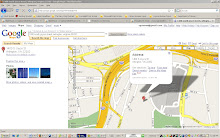


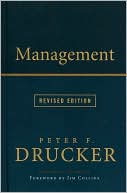
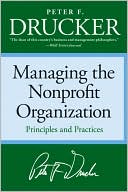

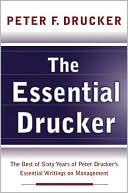
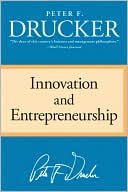
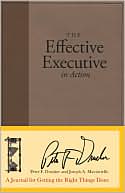
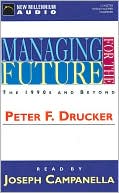
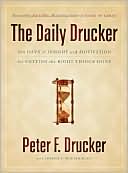
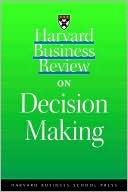
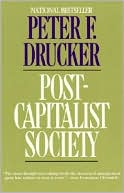

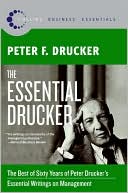
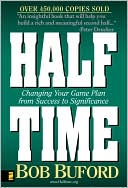
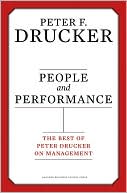
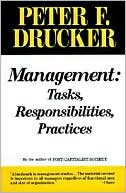
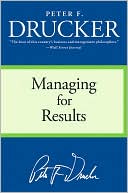

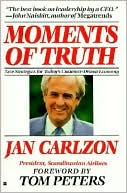
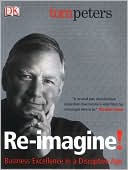

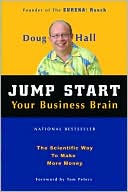
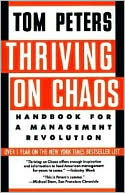

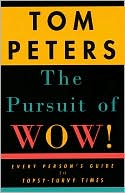
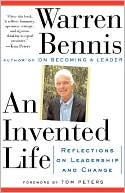
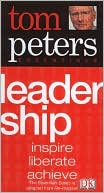
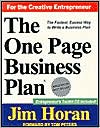
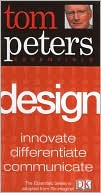
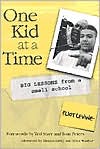
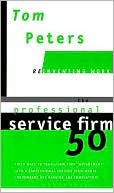
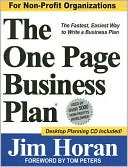

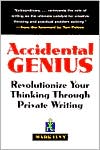



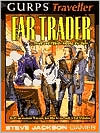
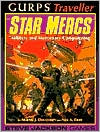
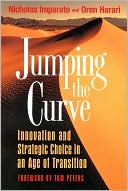
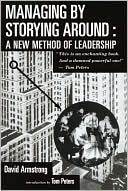

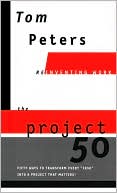
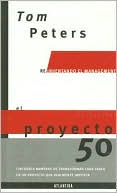
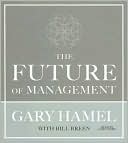


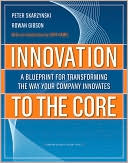
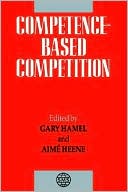
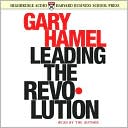
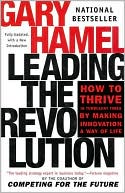
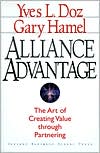



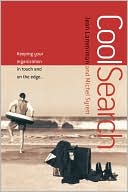


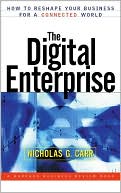
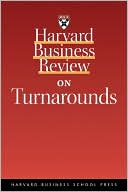
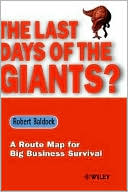
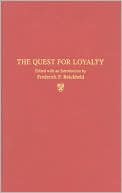
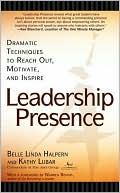
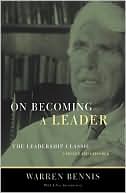
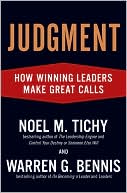
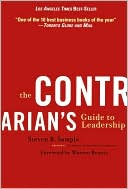
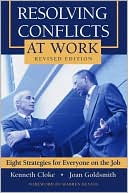
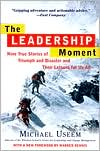
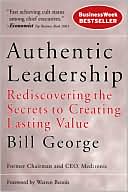
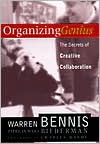

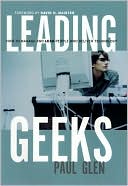
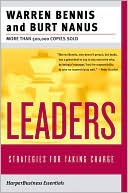
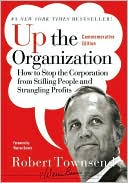
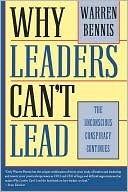
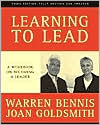
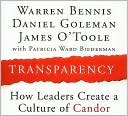

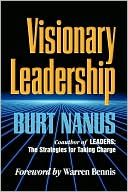
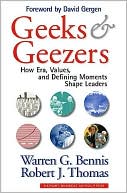

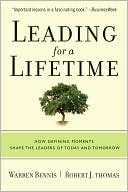


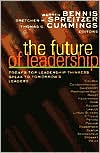
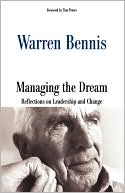
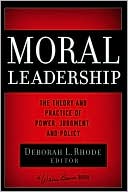
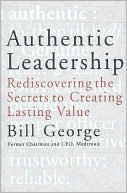

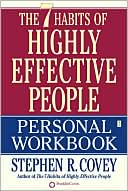
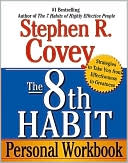
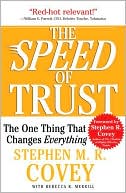
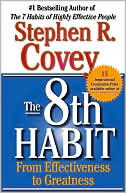
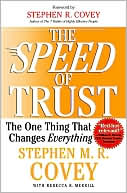
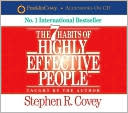
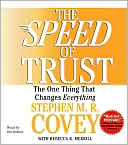
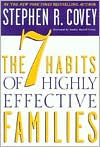
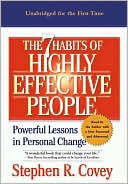
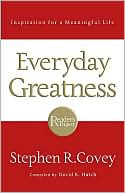

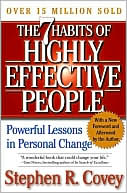
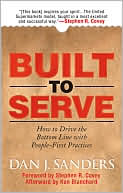
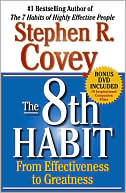
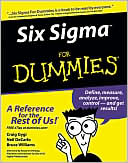
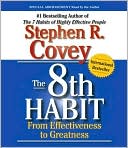

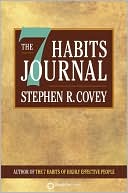
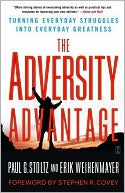

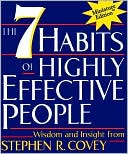
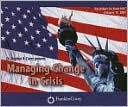

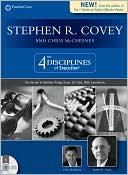


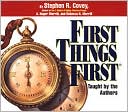
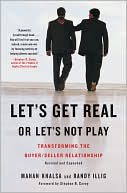
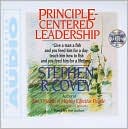



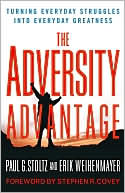
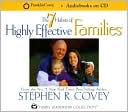

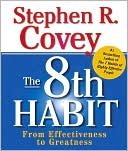

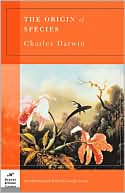

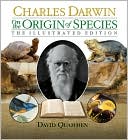
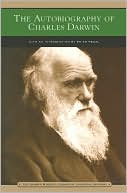
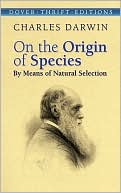






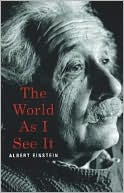
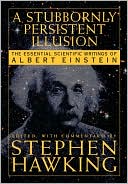

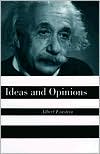
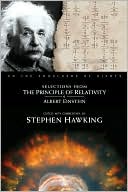
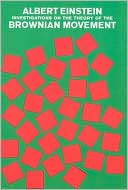
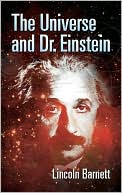
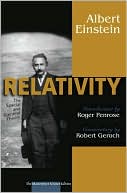








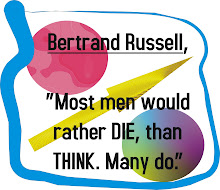
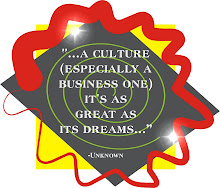
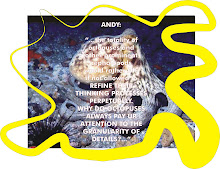
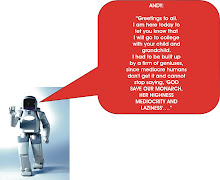
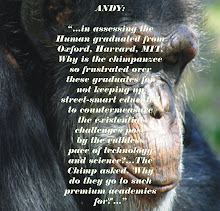


No comments:
Post a Comment